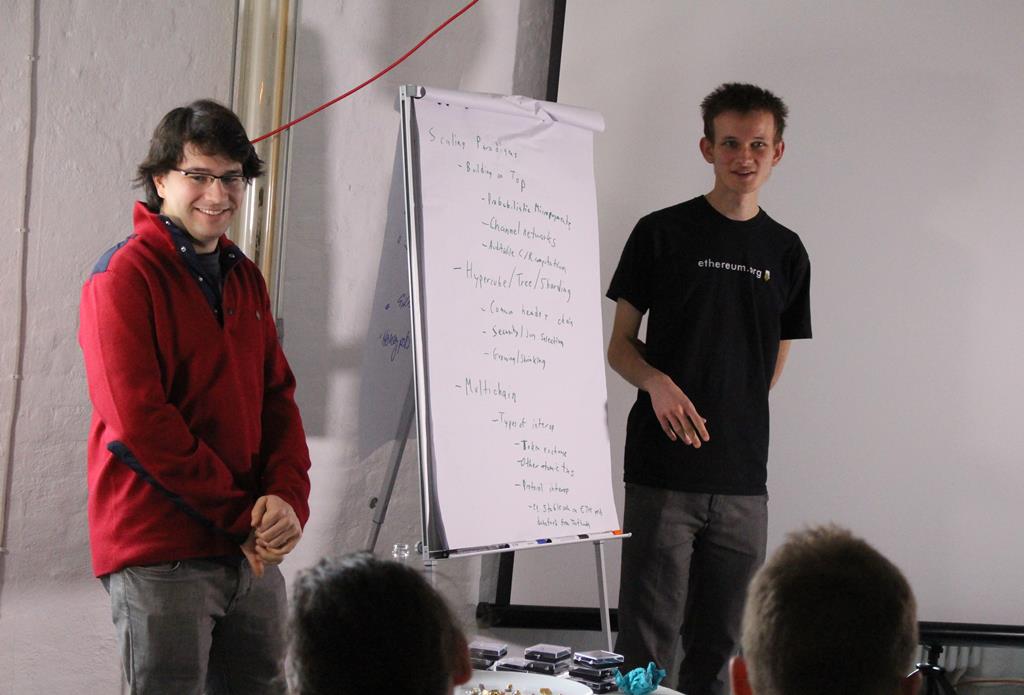The Ethereum Foundation has announced two experimental subsidy schemes for projects developing high-quality implementations of existing known scalability strategies, as well as researching and developing new ones. Subsidy amounts of $50,000 to $1,000,000 will be available depending on scope, scale and quality, with possibly more for highly successful projects.
The Ethereum Foundation is launching two specialized grant programs, which will exist alongside a more general grant program to be released soon, Ethereum co-founder Vitalik Buterin announced in a recent blog post.
“With the Ethereum blockchain reaching 1 million transactions per day, and both Ethereum and other blockchain projects frequently reaching their full transaction capacity, the need for scaling progress is becoming more and more clear and urgent,” Buterin notes.
Buterin speaks on behalf of the entire Ethereum team when he highlights two main paths to improving blockchain scalability:
-
Sharding: The sharding strategy involves creating better-designed base-layer blockchain protocols, which still maintain most of the desired decentralization and security properties of a blockchain that we see in the simple designs available today but only require a small percentage of nodes to see and process every transaction, allowing many more transactions to be processed in parallel at the same time.
-
Layer 2: The second strategy involves creating “layer 2” protocols that send most transactions off-chain and only interact with the underlying blockchain in order to enter and exit from the layer-2 system and in the case of attacks on the system.
“We view the two strategies as complementary with each other and we believe in supporting a multi-pronged strategy toward Ethereum scalability that engages both strategies and treats them as complementary with each other,” Buterin explains.
On that account, the Ethereum Foundation is setting in motion not one but two subsidy programs, one for each blockchain scalability strategy.
Ethereum Foundation Sharding and Layer-2 scalability subsidy programs
Subsidy amounts of $50,000 up to $1,000,000 will be available for both funding schemes, with more available for highly successful projects. The specific amount of the grant given will be established based on the quality of the team, the scope of the proposed implementation, and the progress of the project over time.
“These payments are NOT intended to be sources of substantial profit to recipient organizations; they are rather intended to cover some of the costs involved,” Buterin explains.
Participants will interact closely with the core research team, and the funded work must be entirely open source.
Sharding client subsidy program
The Ethereum team members have picked up speed on their sharding development, over the last few months.
An initial prototype is nearly finalized, Buterin says, with a roadmap that sees it being slowly introduced into Ethereum. A reference implementation is being built in python on top of Py-EVM, and a testnet in python is not too far away, Buterin adds.
“We want the Ethereum sharding testnet, and later sharding mainnet, to be a multi-client ecosystem right from the start, with the Ethereum Foundation not supporting any single privileged production implementation,” Buterin’s blog post reads.
The subsidy program beneficiaries are expected to continue building a deployment in python and other languages. Contributors might have the unique opportunity to become part of the Ethereum 2.0 development team.
Layer-2 scalability solution subsidy program
The second subsidy scheme made available is dedicated to projects that are building scalability and latency-reducing “layer 2” platforms that live on top of Ethereum.
Targets for funding include efforts at developing high-quality implementations of existing known layer-2 scaling strategies (eg. state channels, Plasma), as well as researching and developing new ones.
How to apply
Independent teams of developers, companies, and university and academic groups are all welcome to apply by sending an email to apply@ethereumresearch.org with the following information:
- Official name of project, applicant and core developers
- Further information on the team, including previous activity if any in the Ethereum or blockchain space or distributed systems, mechanism design or cryptography
- Proposal and impact on scalability
- Estimated timeline for development milestones and completion, request for grant amount and estimated total overall budget
Selected participants will be contacted for further information.
Featured image: Vitalik Buterin and Vlad Zamfir of the Ethereum Foundation – Source: Ethereum.org












